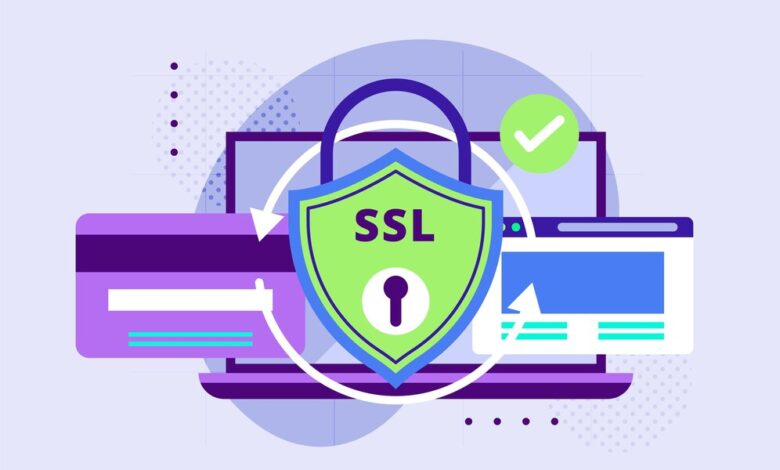Why SSL Monitoring is Essential for Website Security and Performance

In today’s digital-first world, website security isn’t just an option, it’s a necessity. At the heart of secure web communication lies SSL (Secure Sockets Layer), the technology that encrypts data between a user’s browser and a web server. But simply installing an SSL certificate isn’t enough. As threats evolve and certificates expire, SSL monitoring becomes a crucial part of any serious website management strategy.
Whether you’re managing a single site or an entire portfolio, overlooking SSL issues can lead to loss of customer trust, security vulnerabilities, and even search engine penalties. That’s where robust monitoring solutions like UptimeKeeper step in, offering real-time insights and proactive alerts to keep your digital presence secure and performing at its best.
What Is SSL Monitoring?
SSL monitoring involves continuously checking the status, validity, and performance of your website’s SSL certificate. It ensures that:
- Your SSL certificate is valid and hasn’t expired.
- The certificate is correctly configured on the server.
- Visitors can connect securely without browser warnings.
- Upcoming renewals are detected in advance to avoid downtime.
Without active monitoring, SSL certificates can quietly expire or be misconfigured, resulting in dreaded security warnings that scare users away or, worse, break functionality entirely.
Business Impact of SSL Failures
Here’s why SSL monitoring is critical:
1. User Trust and Conversion Rates
Modern consumers are security-conscious. When they see a “Not Secure” warning in their browser, many immediately abandon the site. This loss of trust can directly impact conversion rates and brand reputation.
2. Search Engine Rankings
Search engines like Google consider SSL as a ranking factor. If your certificate fails or expires, your website could lose SEO visibility, reducing organic traffic.
3. Regulatory Compliance
Industries like finance, healthcare, and e-commerce often face strict compliance standards. Failing to maintain an active, valid SSL certificate can result in penalties or legal complications.
4. Performance Issues
Improperly configured SSL certificates can lead to slower load times or connection errors. Monitoring helps ensure performance remains optimal and secure.
Enter UptimeKeeper: Automated SSL Monitoring and More
UptimeKeeper is a comprehensive website monitoring tool designed to keep your site running smoothly 24/7. While many platforms focus only on uptime, UptimeKeeper goes several steps further, offering robust SSL monitoring capabilities integrated right into its core functionality.
Here’s how it works:
SSL Expiry Alerts
UptimeKeeper checks your website’s SSL certificate every minute and alerts your team via SMS or email well before expiration. No more scrambling at the last minute or facing unplanned outages.
Visual Performance Charts
For technical teams or customers who like transparency, UptimeKeeper provides public status pages that display SSL status and other performance data in real-time. These pages help build trust and showcase proactive maintenance efforts.
Instant Issue Notifications
Beyond SSL, UptimeKeeper monitors your entire website stack. If there’s a dip in performance or total downtime, it triggers alerts immediately, ensuring you can act before your customers notice.
Advanced Configuration
UptimeKeeper supports customized monitoring intervals (every minute, by default), multiple alerting options, and tailored check types, including HTTPS certificate verification, port monitoring, and response time checks.
Try UptimeKeeper today by visiting our website https://uptimekeeper.com/ and experience next-level SSL monitoring for complete peace of mind.
Benefits of Using SSL Monitoring with UptimeKeeper
- Peace of Mind: Never worry about missing an SSL expiration again.
- Team Coordination: Automated alerts ensure the right people are informed instantly.
- Customer Confidence: Show off your reliability with transparent uptime and SSL status pages.
- SEO Protection: Maintain your HTTPS integrity and avoid drops in rankings.
- Compliance Support: Ensure certificates are always valid and properly deployed.
How to Get Started with SSL Monitoring
SSL monitoring with UptimeKeeper is easy to set up:
- Create an Account: Sign up on uptimekeeper.com and log in.
- Add Your Website: Enter the domain(s) you want to monitor.
- Enable SSL Checks: Choose SSL monitoring from the available check types.
- Set Notification Preferences: Configure email or SMS alerts.
- Review Your Status Page: Customize the public status page to share with your team or users.
Within minutes, you’ll have automated protection against SSL-related disruptions.
Future-Proof Your Web Presence
The internet is an ever-changing landscape, with cyber threats and performance expectations rising every year. Tools like UptimeKeeper not only help you stay ahead of these challenges but also add a layer of professional polish to your digital operations. With SSL monitoring, you’re not just protecting your site—you’re building a more trustworthy and reliable online brand.
So, if you’re still relying on calendar reminders to renew your SSL certificates or manually checking your website status, it’s time to level up. Let UptimeKeeper handle the behind-the-scenes checks so you can focus on growth, innovation, and user satisfaction.
Final Thoughts
SSL certificates are the foundation of modern website security. But they only work if they’re active, valid, and correctly configured. That’s why SSL monitoring is no longer a luxury, it’s a necessity. With a powerful platform like UptimeKeeper on your side, you can ensure your SSL health is continuously monitored, your visitors remain secure, and your site operates without interruption.



